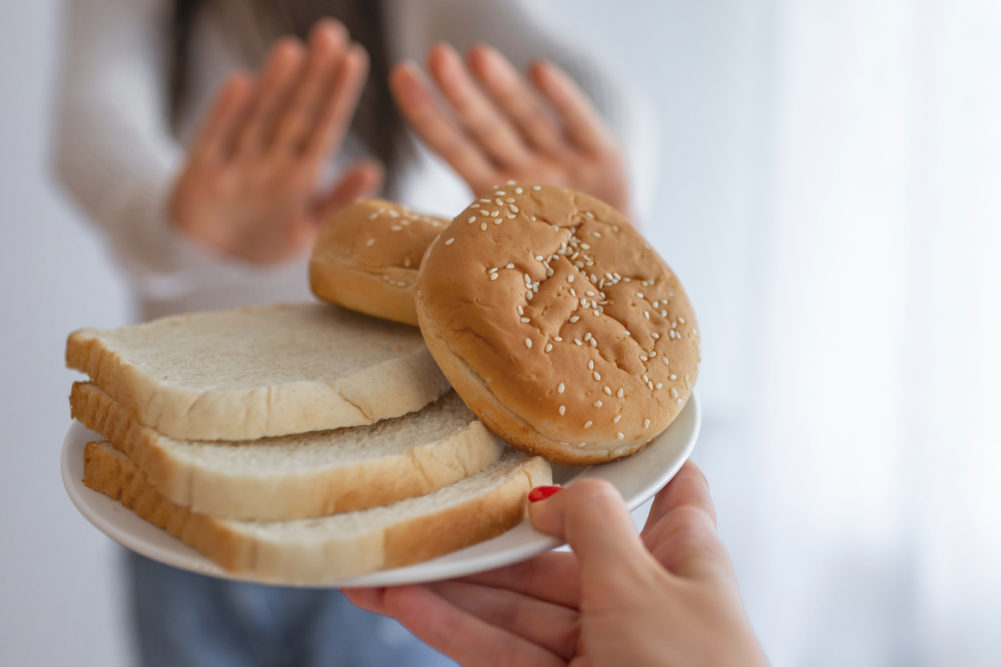 In years of industry discussion about how to combat grain-based foods’ defamers, using litigation as a weapon is rarely if ever raised. However disgusted industry executives may be with the rife disinformation spread in books, magazines and websites vilifying bread and other industry products, an aversion to even carefully considered legal action may be understandable. Defamation attorneys are quick to point out libel cases tend to be far easier to defend than to prosecute. Industry executives may be reluctant to pursue potentially time-consuming, expensive and difficult cases.
In years of industry discussion about how to combat grain-based foods’ defamers, using litigation as a weapon is rarely if ever raised. However disgusted industry executives may be with the rife disinformation spread in books, magazines and websites vilifying bread and other industry products, an aversion to even carefully considered legal action may be understandable. Defamation attorneys are quick to point out libel cases tend to be far easier to defend than to prosecute. Industry executives may be reluctant to pursue potentially time-consuming, expensive and difficult cases.
By contrast, the industry’s adversaries feel no such reluctance. Bakers for years have been subjected to litigation. Whole Foods was sued recently for allegedly deceptive labeling on graham cracker packages. Flowers Foods, Inc. agreed to change the labeling on its Wonder White Made with Whole Wheat Bread in “cooperation” with the Center for Science and the Public Interest. CSPI speaks proudly of its success through “wielding the power of litigation.”
Pursuing a deceptive labeling case is different than a libel or defamation case, but a recent development in the political sphere cast a bright light on the potential power of defamation litigation. Between this episode and numerous state libel laws favoring the food sector, grain-based foods companies should take note.
Of specific interest is the still unfolding aftermath of the “Don’t steal the vote” episode and allegations that a conspiracy involving Dominion Voting Systems led millions of Donald Trump votes to be illegally switched to Joe Biden by voting machines. When it comes to spreading unsubstantiated or false political narratives, no side of the political spectrum is blameless. In addition to the “Don’t steal the vote” campaign, other examples include the accusations of QAnon, the Steele dossier and media characterizations of a Washington encounter between a teen Trump supporter and a Native American man.
In the case of the election, Smartmatic USA Corp., which supplies software for Dominion voting machines, sued numerous parties that have advanced an unsubstantiated theory the machines changed votes. Alleging defamation and disparagement, Smartmatic is suing Fox News for $2.7 billion, claiming the reports have damaged the company’s business prospects. Fox is seeking dismissal.
What’s interesting in this case is the rapidity with which the litigation or threat of litigation has appeared to trigger a powerful rhetorical retreat from news outlets that had been parroting the massive voter fraud claims. In the case of Fox, the lawsuit was promptly followed by a decision to abruptly cancel a popular show. Other networks threatened with legal action have backtracked in their claims of voter fraud.
Making the case of heightened interest to grain-based foods is that the attorney recruited by Smartmatic was J. Erik Connolly of Chicago. Mr. Connolly in 2012 was the lead attorney in a $1.9 billion lawsuit filed against The Walt Disney Co. over its ABC News network’s use of “pink slime” as a term for lean finely textured beef, a product manufactured by Beef Products, Inc., now doing business as Empirical. To the amazement of legal experts who had expected Disney to prevail, that case was settled in 2017 just as a trial was expected to begin in South Dakota. A Wall Street Journal article at the time noted that because the state of South Dakota has a food-libel law that provides for triple damages when defendants knowingly lie about the food product, Disney may have had greater motivation to settle. Applicable in 13 states, the libel law offers protections from disparagement that may be easier to prove than traditional common law trade libel.
Could the judicious use or threat of litigation benefit grain-based foods? Could it have a deterrent effect without unnecessarily stifling free speech? White bread, crackers and children’s breakfast cereal are not “empty calories.” The characterization is an example of a disparaging lie. Yet major publishing companies post articles using that term explaining it as calorie-dense foods without nutritional benefit. The remarkable and powerful instant effect of the Smartmatic lawsuit suggests that prudently considered litigation is an instrument grain-based foods ought to consider adding to its toolbox.






